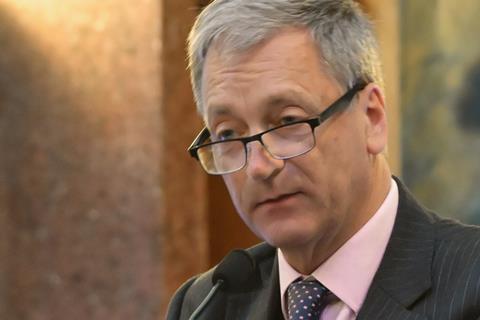The Law Society has warned that time is running out to save the civil legal aid sector after revealing that the number of firms awarded a contract has plummeted.
Chancery Lane said 1,236 firms have been awarded contracts. The last published annual figure, for 2023-24, was 1,320. The number of areas without face-to-face housing legal aid provision has doubled.
Independent economic analysis commissioned by the Society found that housing legal aid was loss-making for lawyers who felt morally obliged to keep going - yet housing legal aid reforms could save the NHS at least £15m a year.
Society president Richard Atkinson said: 'Legal aid is a vital public service that means citizens can have their voices heard. A lack of access to it has implications on our living situation, health and our children’s education. It is concerning that housing legal aid is now severely lacking.

‘As the cost-of-living crisis continues, we should be entitled to decent housing and protection from eviction by rogue landlords. It is particularly important as the government seeks to reform the rental market through the Renters’ Rights Bill, which the Law Society has welcomed, that tenants should be able to get advice when threatened with eviction.'
London firm Duncan Lewis dropped legal action against the government over fees for immigration and asylum work after being reassured the lord chancellor would make a decision on rates by the end of November and issue a consultation.
Immigration and asylum is one of 11 contracted categories of law covered by a civil legal aid sustainability review commenced under the previous government. The lord chancellor's reassurance in the Duncan Lewis case suggests final policy decisions will emerge in November.
Atkinson said the need for investment applied across the sector but 'time is running out as suppliers continue to leave the market in droves'. He urged the government to act now.
The Society has called for a 20% fee uplift as an interim measure to save the sector from collapsing.
This article is now closed for comment.



























18 Readers' comments